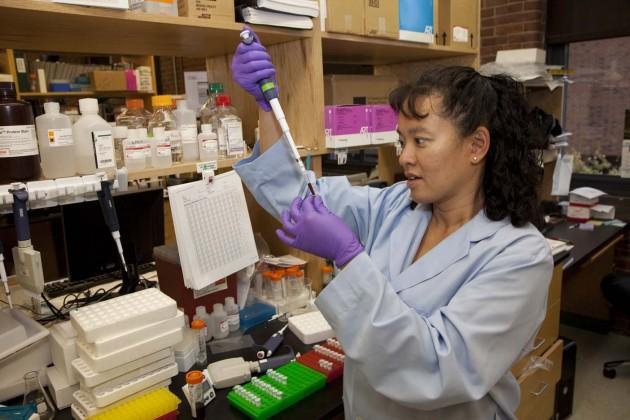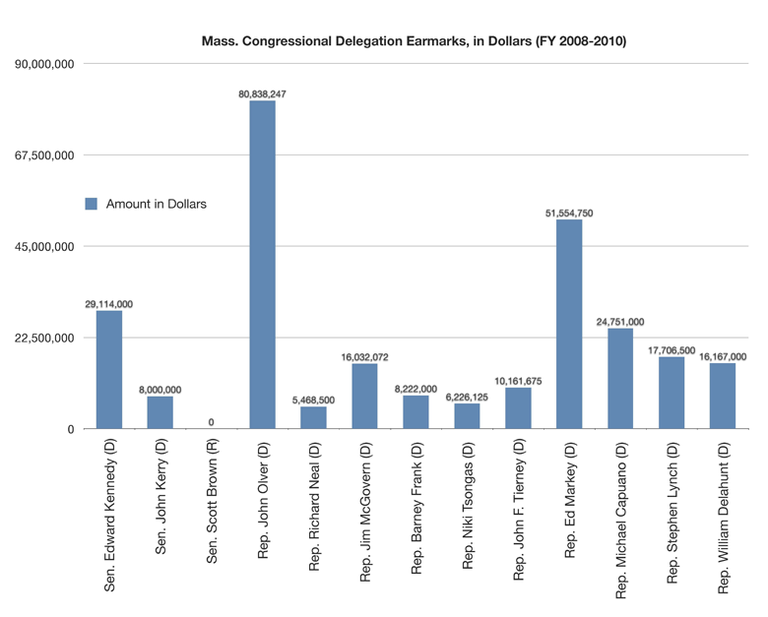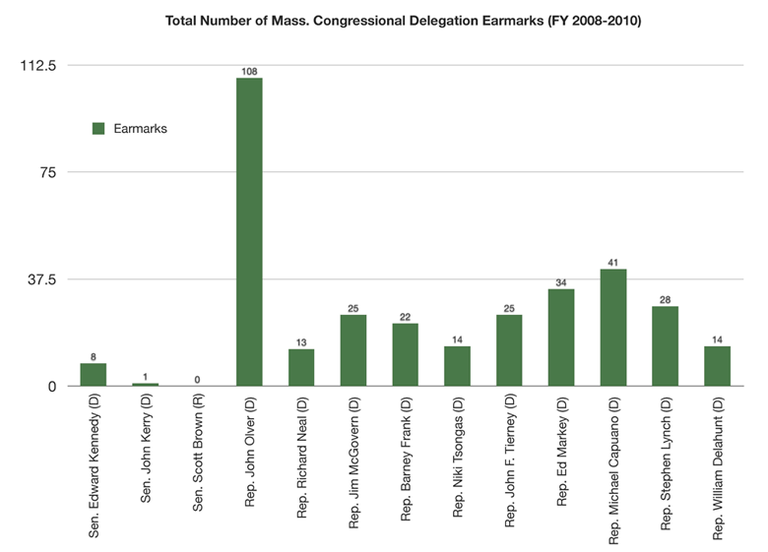Advertisement
Mass. Gets No Pork From Sen. Brown
Resume
Earmarks have long been maligned as pork. I thought I’d go see what one looks like in Massachusetts, so I went to the ALS Therapy Development Institute in Cambridge.
There, I told Carol Hamilton, the institute's director of governmental affairs, that a lot of people think earmarks are wasteful spending.
"Sometimes they are, but not all earmarks are bad," she said. "Some of them are saving lives and you’ll see that right now."
Hamilton led me into a very large lab where scientists were working to develop drugs to treat and cure ALS. The institute is a nonprofit bio-tech seeking a cure for ALS, also called Lou Gehrig’s Disease.
"Earmarks have typically been used as a way to get around a procurement system that’s in need of reform."
Chris Anderson, president, Massachusetts High Technology Council
The institute is using a $2.8 million earmark to look for an ALS cure. And time is of the essence, says Hamilton, because a person diagnosed with ALS is given two to five years to live.
"When you work with an earmark the process is faster and absolutely still competed and looked at and vetted," Hamilton said.
This particular earmark was co-sponsored by Rep. Michael Capuano. Capuano is proud of his earmarks and has sponsored more than $24 million in projects for the 2008-2010 fiscal years.
"In Massachusetts in particular, I think on a per capita basis no matter how you measure it, we’ve actually done pretty well," Capuano said.
"It’s partially because of the clout of the delegation, clout of (the late) Sen. (Edward M.) Kennedy and Sen. (John) Kerry," he said. "So my hope is that if nobody is going to get them, fine, but then Massachusetts will be treated less fairly in comparison to other states and if we are going to get them, I hope everyone participates in it because it’s good for the commonwealth."

Sen. Scott Brown's Promise
Republican Sen. Scott Brown says he won’t participate in the earmark practice for his first year in office. He says the practice is abused and leads to approving wasteful projects. In June, Brown said earmark spending is driving up the nation’s debt.
"Congress continues to earmark the special pet projects within the budget," Brown said on the Senate floor, "without any hope for termination of that practice."
Some political observers are worried that if you don’t make earmarks, there’s a clear risk to losing funding.

"It’s going in two different areas (if Brown doesn't request money for Massachusetts)," said Jeff Berry, a professor of political science at Tufts University. "One is other Massachusetts representatives or Sen. Kerry are getting a little bit more. Or it’s going to other states so our tax money that goes to Washington may be helping to fund an earmark in Wyoming, so in that sense he’s just shooting Massachusetts in its foot."
The Case For Earmarks
In particular, high-tech and bio-tech industries are going to suffer, says Chris Anderson, president of the Massachusetts High Technology Council. Anderson says the normal way to get federal funding is very long and holds back small, innovative technology companies.
"Earmarks have typically been used as a way to get around a procurement system that’s in need of reform," Anderson said.
Anderson says earmarks are crucial to growing jobs in high-tech companies. Berry says Brown’s self-imposed ban is symbolic and a way to prove he’s conservative. But Berry doesn't think Brown will always shun the use of earmarks.
"I think he’s going to change his mind," Berry said. "There are so many good things that you can do with the money. He’s going to be hard pressed to keep refusing mayors and city councilors and nonprofit leaders who go to his office and say, 'Look Sen. Brown we need your help.' "
The no earmark trend is spreading in Massachusetts. Republican candidate Rep. Jeff Perry, who is running for the open seat in the 10th Congressional District, says if he wins, he would also pledge not to fund earmarks.
Editor's note: Sen. Scott Brown declined WBUR's request for an interview about his position on earmarks.
This program aired on October 15, 2010.